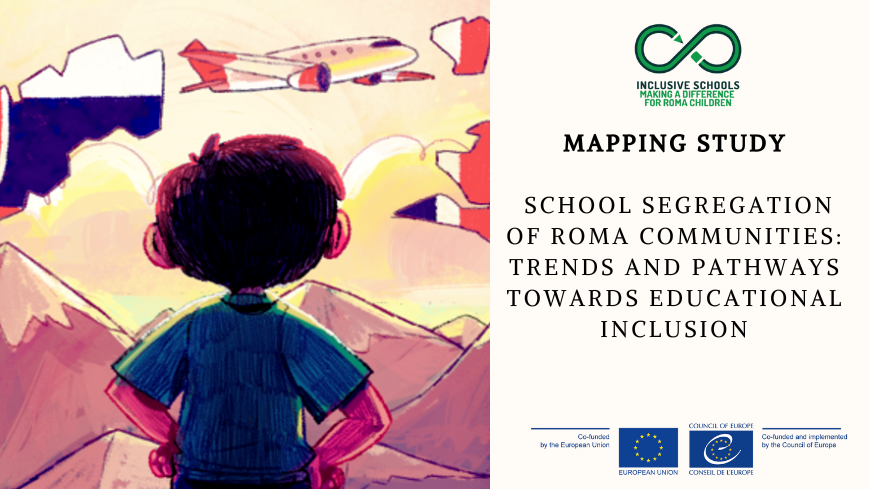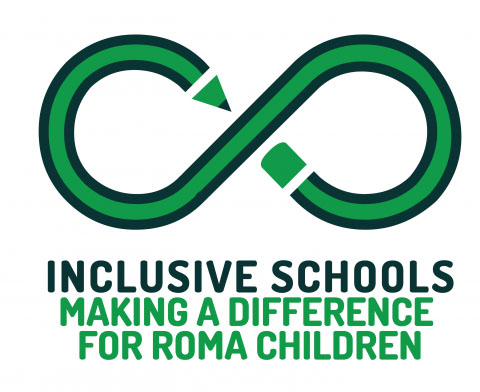The Mapping Study on School Segregation of Roma Communities: Trends and Pathways Towards Educational Inclusion is a study commissioned by the European Union and Council of Europe Joint Project Inclusive Schools: Making a Difference for Roma Children (INSCHOOL). The main objective of the study is to bring to the attention the issue of school segregation of Roma communities, international obligations, detection mechanisms and present promising practices across Europe as regards desegregation measures to support the relevant national authorities and education professionals in their desegregation efforts and improving the inclusivity of the education systems.
The study starts with elaboration of the consequences of school segregation and provides an overview of historical landscape of the issue in Europe, including the current trends, making evident the lack of progress in Europe in the recent years. Next, legal analysis takes stock of the relevant international standards related to non-discrimination and segregation in education, including the relevant European Court of Human Rights and selected national courts jurisprudence, as well as the European Union framework. The chapter points to positive obligations of States and public authorities while presenting lessons learned and difficulties of regulating segregation. The study follows with the analysis of the types of segregation and provides tools on detection by school inspections, national human rights institutions, and equality bodies. Difficulties of identifying ethnic Roma students and tools based on self-identification, third party identification and the use of proxies are presented, while making the reader cautious about the risks associated with different types of data collection and providing a selection of commendable practices in organising and conducting investigations into segregation. The study also looks at the array of policies that governments can leverage to combat school segregation, while recognising the multifaceted nature of this challenge and the need for tailored strategies to address the issue effectively, including through compensatory policies. Finally, it offers comprehensive protocol for Roma school desegregation, designed to guide policy makers at all levels. The study places focus on showcasing promising practices and relevant literatures available for policy makers to support effective policy making on desegregation.
The study can be accessed through this link


